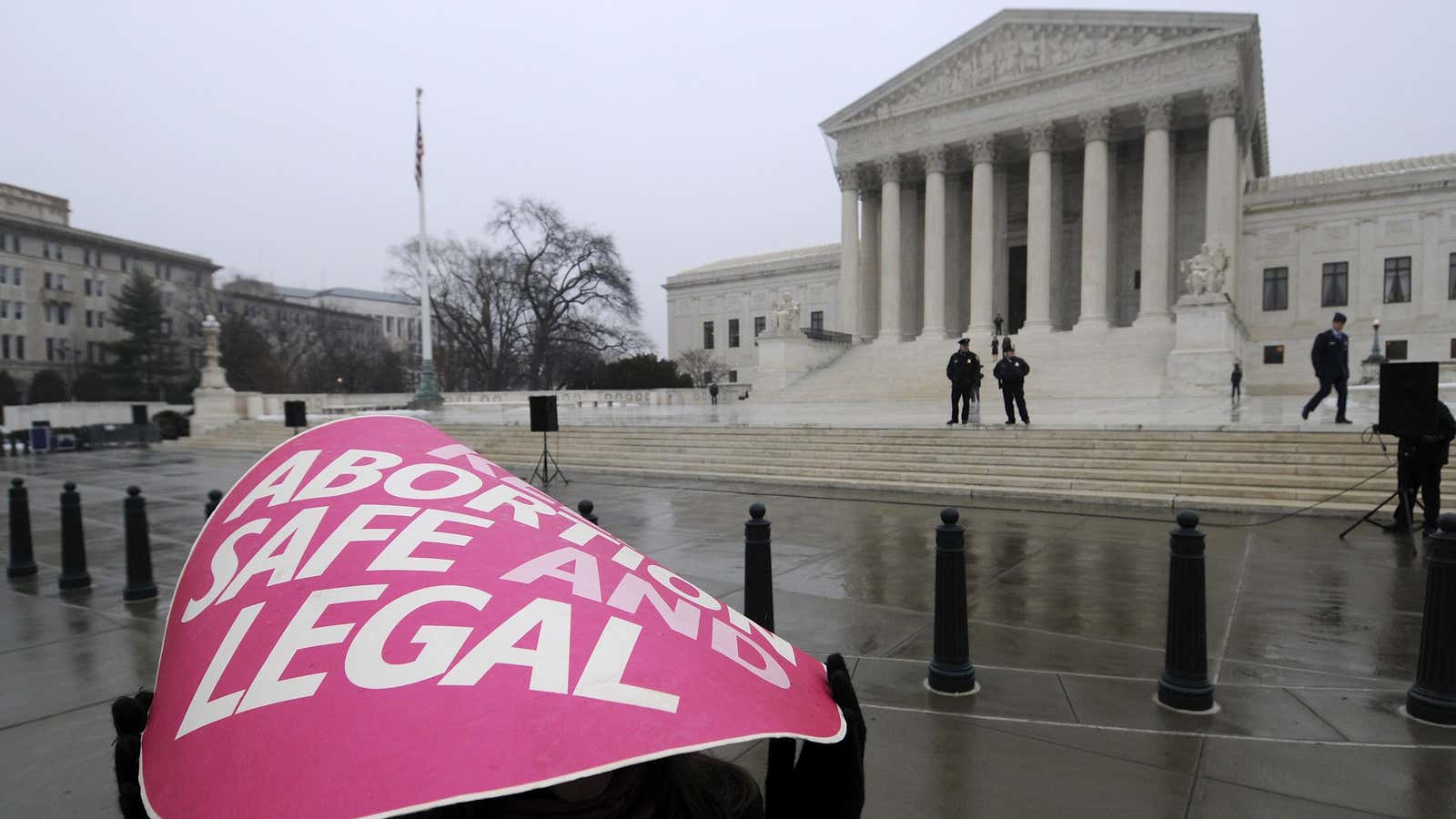The US government announced yesterday that it would open a division for conscience and religious freedom within the federal department of health and human services (HHS). The division works to protect health care practitioners who refuse to perform certain procedures or refuse to treat patients due to their beliefs (ie. ensuring they are not forced by an employer, or lose their jobs when they refuse.)
Abortion is the first in the HHS’s list of potential situations in which medical personnel might refuse service. Presenting the new division, the director of the HHS’s office for civil rights Roger Severino said, “No one should be forced to choose between helping sick people and living by one’s deepest moral or religious convictions.” However, the idea that OB-GYNs are “forced” to make such a choice is a logical fallacy.
Medical professionals are not forced to perform procedures that they object to. They have the full right to practice in the many fields that do not include procedures their conscience disagrees with—a doctor who objects to abortion might be better suited to dermatology, orthopedics, or pediatrics, for example.
Forty-five years ago, Roe v. Wade recognized abortion as a constitutionally protected right for women. Today, with one in three American women estimated to have an abortion in their lifetime, the procedure is much more than a collateral service on an an OB-GYN menu; it’s a core service, like colonoscopies for gastroenterologists, or root canal procedures for dentists.
It is safe to assume that most obstetricians and gynecologists currently operating in the US knew that the right to access abortion had been granted to women before they started their practice. Yet some doctors who choose to enter the OB-GYN specialization still refuse to offer that access. In the US, according to a recent analysis by reproductive health research center Guttmacher Institute, only 7% of private OB-GYN practitioners are willing to perform abortions; among those working in public setting, the percentage is still low—around 14%.
The ability to perform an abortion is paramount in the practice of gynecology. Although doctors cannot refuse abortions when a mother’s life is in danger, they can push her health risk to the very limit to avoid performing the procedure. For women whose lives are not in danger, denying the procedure still rejects patients’ own definition of physically or mentally thriving, and curtails their ability to exercise a legal right over their own body. While this might be acceptable from a fellow citizen, it’s not a reasonable position for a doctor whose professional concern is the woman’s wellbeing, by definition.
People don’t join the military only to refuse combat. While faith-based exemption might make sense for non-specialized professionals like nurses, doctors who refuse to perform abortions or any other basic gynecological health service, like pap smears, should not be allowed to call themselves OB-GYNs.
